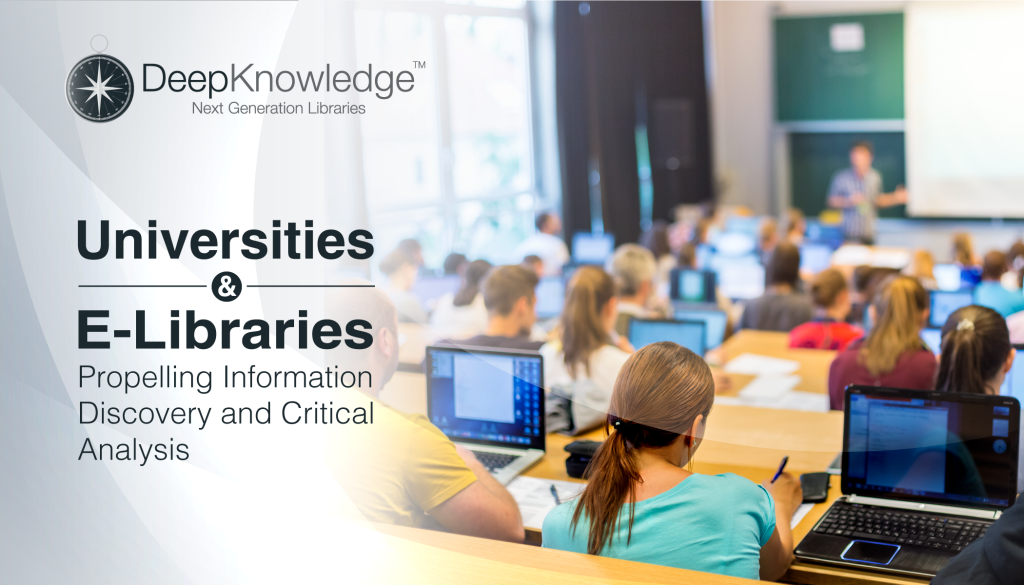Whether it is for teaching, research or self-development, libraries form an indispensable part of academic life. After all – they form the key source of knowledge acquisition.
In this age of information, with the Internet transforming every aspect of life, the way knowledge and information is acquired has evolved. E-libraries are emerging as a natural evolution to physical university libraries due to the host of advantages they onboard.
In this blog, we look at why progressive faculty members choose to extensively rely to e-libraries in present day and what impact does this have on their students.
Libraries form an essential part of learning in any university or research organization. After all, they contain the large repository of knowledge and information for the reference of students, faculty and staff members.
Historically, it was the physical university libraries that were depended upon to retrieve information for teaching, learning and research needs.
However, given today’s information age and the instant gratification facilities available, individuals are naturally inclined towards the choice to access any information they need from their Web enabled devices such as laptops, smart phones or tablets. This makes e-libraries very relevant and indispensable in present day academic setups.
In this blog we look at why exactly do progressive faculty of today’s times prefer to heavily rely on e-libraries for their knowledge acquisition and what implication does this have on the upcoming generation of researchers and teachers.
1. Why Progressive Faculty Members Prefer E-libraries?
1.1 Ensures a gateway to access authenticity information
E-libraries present faculty members with the chance to access and provide their students with highly credible information. With the physical limitation of accessing the university library, many a time, the information from the Internet is depended upon.
With the presence of an e-library, this dependence on less credible open-sources of information is reduced. The information from e-libraries that is accessed is of the desired authenticity, which has widespread implications in forming a robust knowledge base both for the faculty and their students.
1.2 Helps them to stay updated with the latest research
With the large database of recently published research available at fingertips in an e-library, the faculty members get a chance to augment their lectures and the reading material that they recommend with the most dated research.
This helps to ensure that the information shared with students in the classrooms are extremely relevant to present day and not just restricted to the same old editions of textbooks that are being followed historically.
1.3 Saves time and introduces research efficiency
E-libraries make it very simple to retrieve relevant, useful and accurate information with their sharp discovery tools. Moreover, due to digital formats because of which multiple copies can be produced, the issue of unavailability doesn’t arise as in the case of physical reading materials.
This makes the process of accessing desired information very simple and agile, while eliminating the time and physical barrier to accessing information in physical libraries. As a result, intent based knowledge acquisition never takes a backseat due to external factors.
2. The Ripple Effect of Faculty’s Approach on Students
Specifically talking in regard of approach towards reading, the way faculty members research and acquire their own knowledge has a direct influence on their students.
It can be safely said that teachers play the role of inspiration for their students. If as faculty members, they are always updated with the latest information, and share only authentic content with their students, it is implied to have a ripple effect on the future academic communities.
Students are bound to be inclined towards having the habit of referring to latest information and making the use of the possibilities exposed by e-libraries. Wish to launch an e-library to augment the learning efficacy in your University? Get in touch with experts at DeepKnowledge™ to get started.





You must be logged in to post a comment.